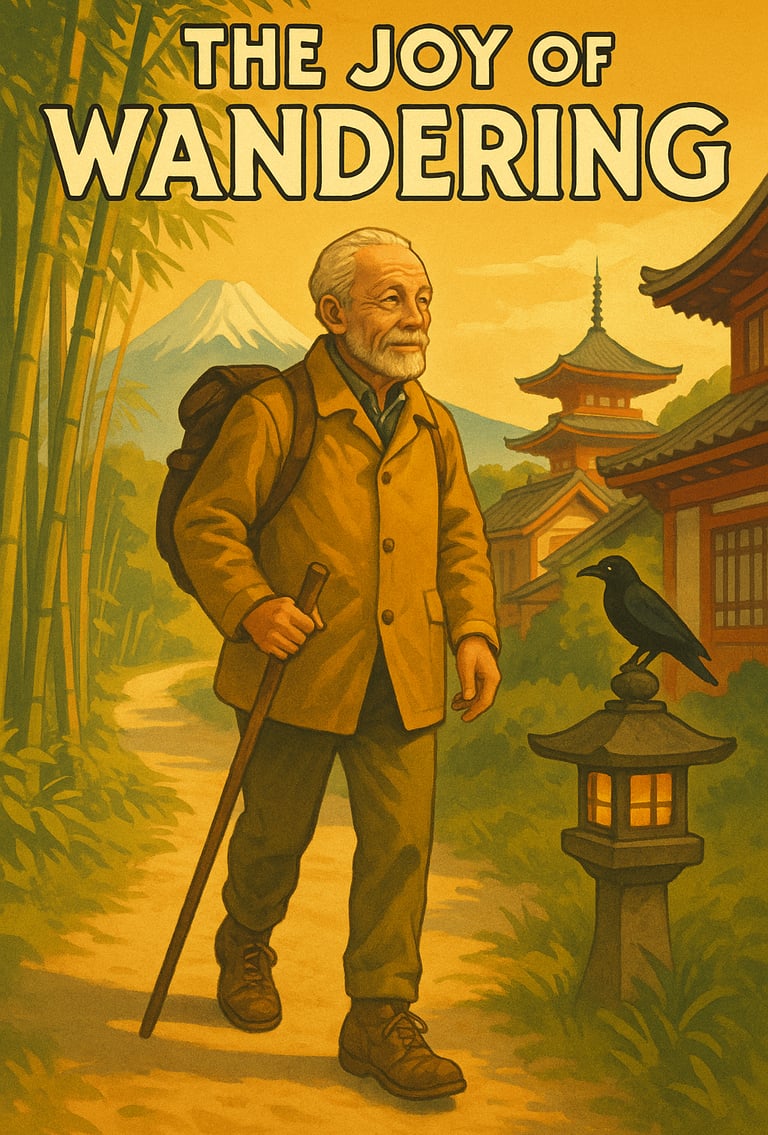Hiking is Recreation: Wandering is Existential
The difference between hiking and wandering.
9/9/20252 min read


Retirement offers one precious gift above all others: time. Time to return to long-neglected interests, to encounter the unfamiliar, and perhaps to rediscover a self that years of responsibility quietly set aside. In the effort to become “more adult,” many of us relinquish core beliefs without quite noticing. Stepping away from work, I have found the chance to recover mine.
Over the past year, I have returned to hiking. This simple activity has led to recurring questions: where to hike, when to hike, and, increasingly, why we hike at all. For me, hiking embodies freedom—the freedom to move at my own pace, to meet the unexpected, and to see the world differently. Yet this freedom is not singular in nature. Philosophers often distinguish between two forms:
Negative freedom: freedom from interference, constraint, or coercion.
Positive freedom: freedom to pursue one’s own will, desires, and potential.
In my experience, hiking is an expression of positive freedom—a deliberate pursuit of self-realization through movement in nature. Still, I find myself uneasy with the language we use. The English word hiking feels too narrow, too practical, too instrumental. I am drawn instead to the German word wandern. Though it translates literally as “to hike,” it carries a far richer meaning.
Wandern is historically tied to the Wanderjahre—the “wandering years” of German apprentices who traveled from town to town, gathering skill, experience, and maturity. The word implies more than physical travel; it suggests a way of being in the world—an openness to the unknown and a willingness to move for its own sake. To wandern is not merely to exercise on a trail, but to participate in a cultural and even spiritual tradition of moving through landscapes with attentiveness and curiosity.
The difference between hiking and wandering matters. Hiking usually implies purpose: a marked trail, a summit, a destination. It is structured, bounded, and goal-directed. Philosophically, it leans toward teleology—movement organized around an end point. Within a Kantian frame, hiking fits comfortably as a rational, self-governed activity grounded in discipline and intention. It carries connotations of order, planning, and measurable achievement.
Wandering, by contrast, resists this structure. To wander is to accept uncertainty and allow movement to unfold without predetermined ends. It may look aimless—meandering, exploratory, unplanned—but this very openness gives it existential depth. As Albert Camus wrote, “You can’t create experience; you undergo it.” Wandering embodies this insight. It becomes a quiet form of revolt: a refusal to justify each step, to prove its worth, or to subordinate it to some higher purpose. Camus himself was a devoted wanderer, treating his daily walks as essential to his thinking and his life.
Nietzsche, too, imagined the wanderer as the figure of the free spirit—one who leaves the beaten path, questions inherited values, and tests new possibilities. To wander is therefore an enactment of autonomy: a recognition that meaning is not delivered by destinations but emerges in the act of moving without one.
Seen this way, hiking is largely recreational—structured, goal-oriented, and aligned with discipline and accomplishment. Wandering is existential—open-ended, reflective, and resistant to external justification. To say “I wander” instead of “I hike” is to place oneself within a long lineage of seekers, philosophers, and artists who understood movement not simply as exercise, but as a practice of self-discovery.
